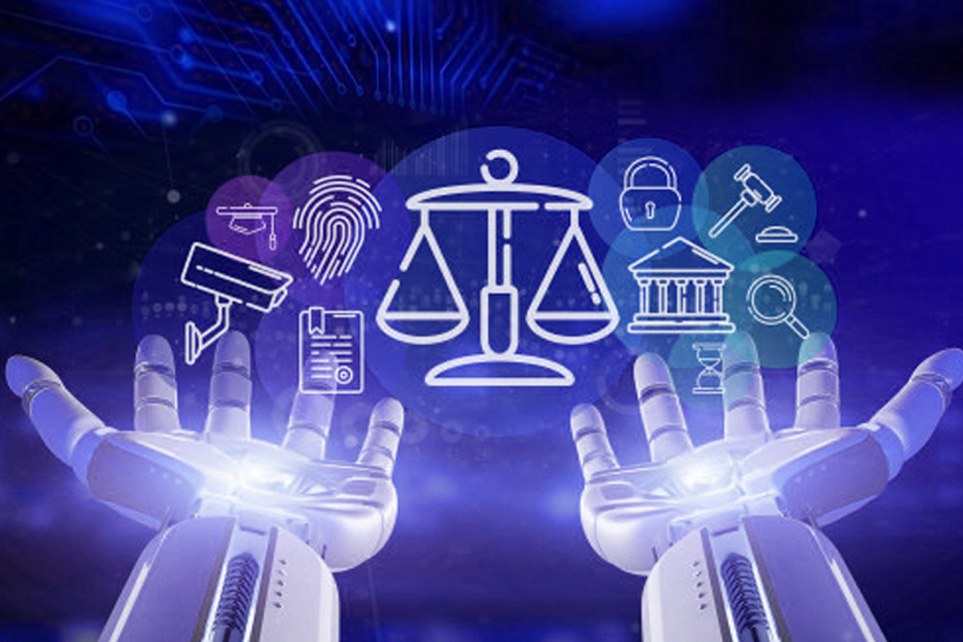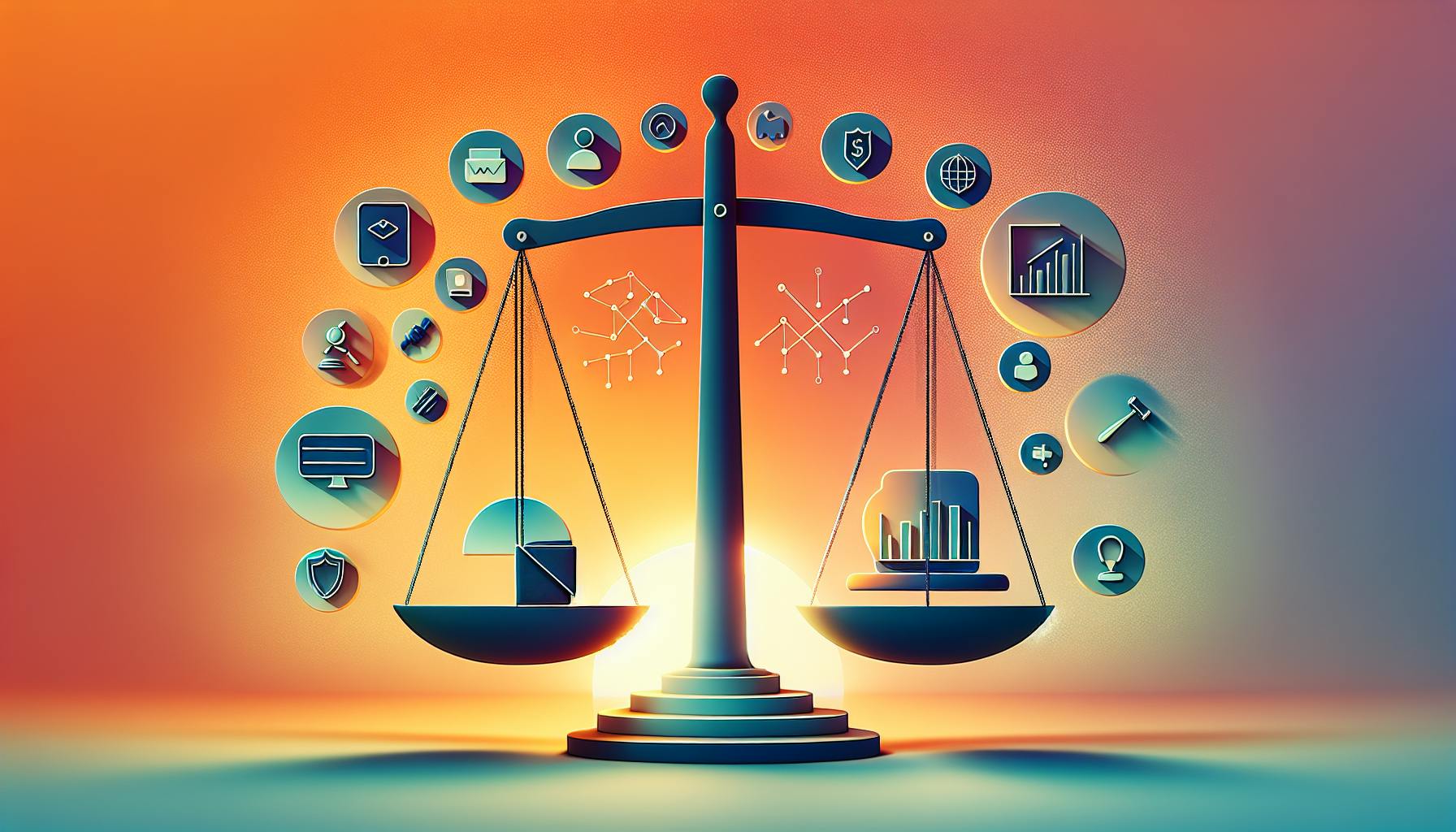Introduction
The legal industry, traditionally known for its adherence to established practices and protocols, is experiencing a significant transformation driven by rapid technological advancements. In 2024, cutting-edge technologies are reshaping legal practices, enhancing efficiency, accuracy, and accessibility. From artificial intelligence and blockchain to advanced analytics and automated contract management, these innovations are revolutionizing how legal professionals operate and deliver services. In this blog, we delve into the latest technology trends shaping the legal industry in 2024, exploring how these advancements are driving progress and setting new standards for legal practice.
1. Artificial Intelligence and Machine Learning
Artificial Intelligence (AI) and Machine Learning (ML) are at the forefront of technological innovation in the legal sector. These technologies are streamlining various aspects of legal work, from research and document review to predicting case outcomes. AI-powered tools like ROSS Intelligence and LexisNexis are revolutionizing legal research by analyzing vast databases of legal texts, case laws, and statutes, providing lawyers with precise and relevant information in a fraction of the time it would take manually. Moreover, AI algorithms can predict the outcomes of legal disputes by analyzing historical case data, helping lawyers develop more effective strategies.
For example, in the field of contract review and management, AI platforms such as Kira Systems and Luminance use natural language processing to scan and analyze contracts for key clauses, potential risks, and compliance issues. This not only speeds up the review process but also enhances accuracy, reducing the risk of oversight. The integration of AI and ML in the legal industry is not just about efficiency; it is about augmenting human capabilities, allowing legal professionals to focus on higher-value tasks such as client advisory and litigation strategy.

2. Blockchain Technology
Blockchain technology is making significant inroads into the legal industry, offering unprecedented levels of security, transparency, and efficiency. Smart contracts, which are self-executing contracts with the terms of the agreement directly written into code, are a prime example of blockchain's impact. Platforms like Ethereum enable the creation and execution of smart contracts, ensuring that agreements are automatically enforced without the need for intermediaries. This can significantly reduce the time and cost associated with traditional contract management and dispute resolution.
Additionally, blockchain's immutable ledger system is transforming the way legal documents are stored and authenticated. Legal professionals can use blockchain to verify the authenticity of documents, ensuring that they have not been tampered with. For instance, companies like Integra Ledger and LegalThings One are leveraging blockchain to create secure and verifiable legal records. This technology is particularly valuable in areas such as intellectual property, where maintaining a clear and tamper-proof record of ownership and transactions is crucial. By adopting blockchain, the legal industry is enhancing trust and reliability in legal processes.

3. Legal Analytics
Legal analytics involves the use of data analysis tools to extract actionable insights from vast amounts of legal data. This technology is transforming how law firms and legal departments approach case strategy, client management, and business development. Tools like Lex Machina and Premonition analyze historical litigation data to identify trends, predict case outcomes, and benchmark law firm performance. By leveraging these insights, legal professionals can make more informed decisions, tailor their strategies to specific judges or jurisdictions, and improve their overall success rates.
For example, in litigation, legal analytics can help attorneys understand the tendencies of opposing counsel and predict the likelihood of winning a case based on similar past cases. This allows for better risk assessment and resource allocation. In the realm of business development, law firms can use analytics to identify emerging legal needs and market trends, enabling them to proactively offer relevant services to clients. The integration of legal analytics is helping firms transition from reactive to proactive strategies, ultimately leading to better client outcomes and more efficient operations.

4. Automated Contract Management
Automated contract management systems are revolutionizing the way contracts are created, managed, and executed. These systems use AI and machine learning to automate repetitive tasks such as drafting, reviewing, and monitoring contracts. Platforms like Ironclad and ContractPodAi offer end-to-end contract lifecycle management solutions that streamline the entire process, from contract creation to execution and renewal.
In practical terms, automated contract management can significantly reduce the time and resources required to handle contracts. For example, a multinational corporation can use these systems to manage thousands of vendor contracts across different jurisdictions, ensuring compliance with local laws and regulations. The use of automation also minimizes the risk of human error and enhances contract visibility, allowing legal teams to monitor contract performance and deadlines more effectively. By adopting automated contract management, organizations can improve operational efficiency, reduce legal risks, and achieve greater consistency in contract administration.

5. Virtual Legal Assistants
Virtual legal assistants, powered by AI, are becoming an integral part of modern legal practice. These digital assistants, such as Amelia and Ailira, can handle a variety of tasks including client intake, legal research, scheduling, and even providing preliminary legal advice. By automating routine administrative tasks, virtual legal assistants free up valuable time for legal professionals to focus on more complex and strategic work.
For instance, a law firm can deploy a virtual assistant to manage client inquiries, schedule consultations, and provide basic information about legal services. This not only enhances client engagement but also improves response times and overall client satisfaction. In legal research, virtual assistants can quickly gather and summarize relevant information from legal databases, helping lawyers prepare for cases more efficiently. The adoption of virtual legal assistants is transforming the client experience and operational efficiency in the legal industry, making legal services more accessible and responsive.

Conclusion
In conclusion, the legal industry is undergoing a profound transformation driven by technological advancements. From AI and blockchain to legal analytics, automated contract management, and virtual legal assistants, these innovations are reshaping how legal professionals work and deliver services. By embracing these technologies, the legal industry can achieve greater efficiency, accuracy, and client satisfaction. As we move forward, the continued integration of these cutting-edge tools will be crucial in addressing the evolving needs of the legal landscape, ensuring that the industry remains adaptable and resilient in the face of future challenges.
